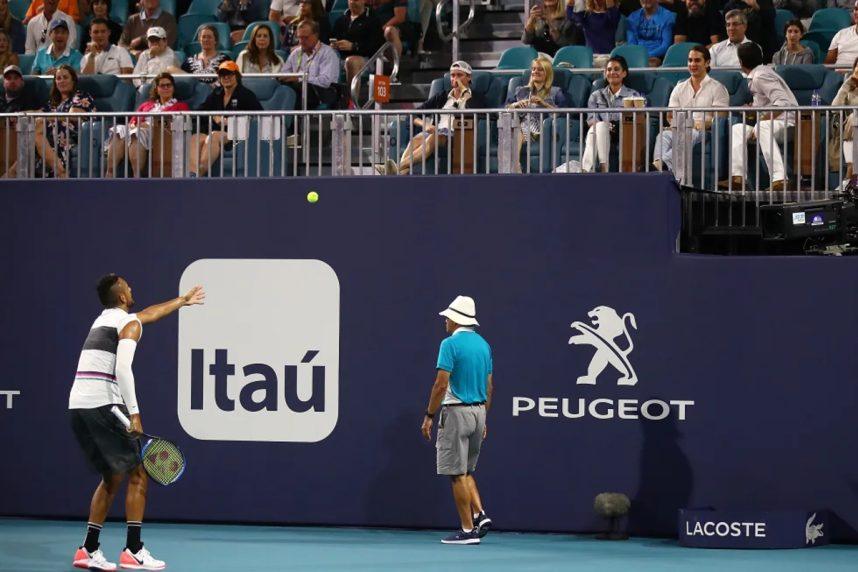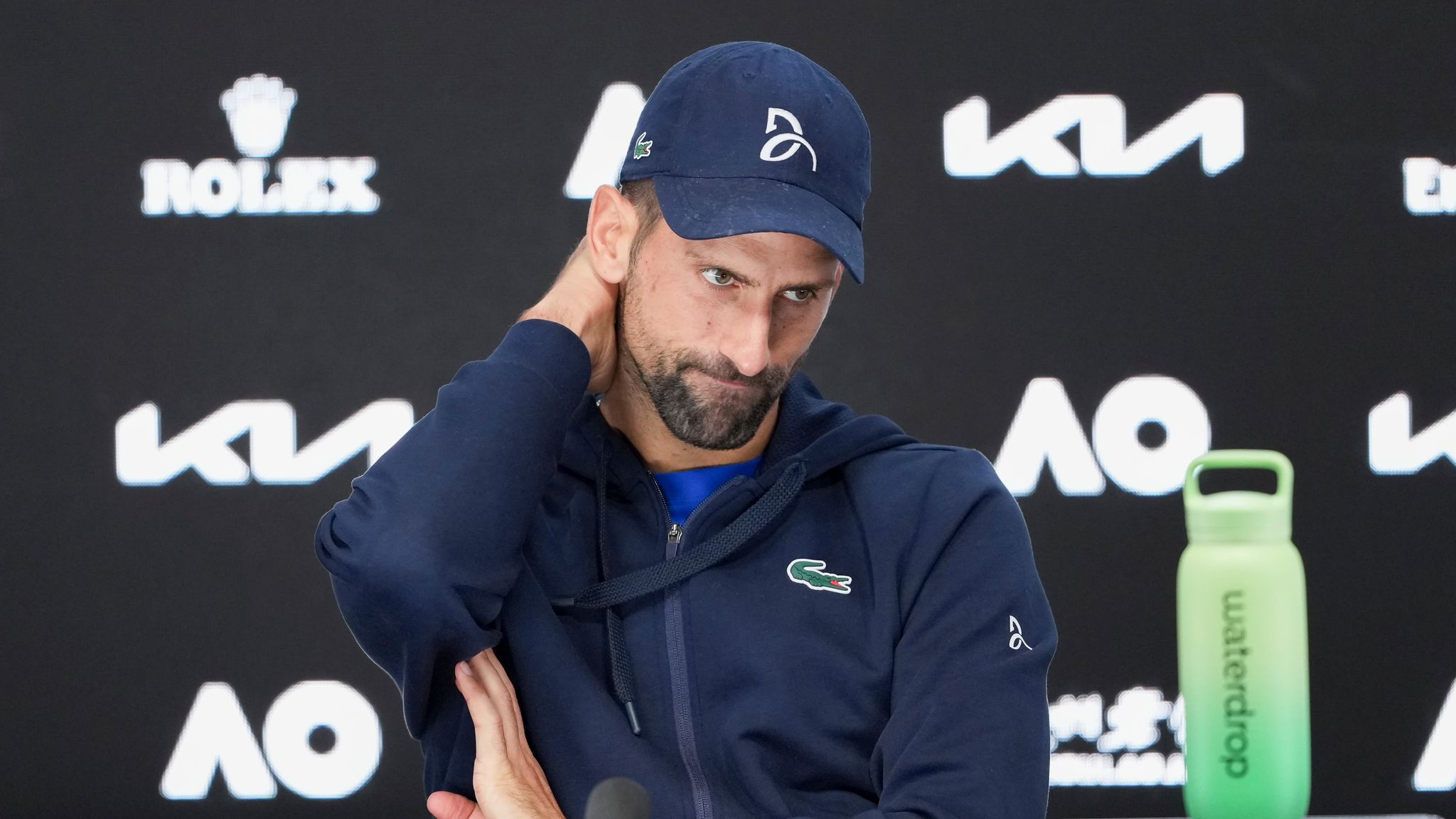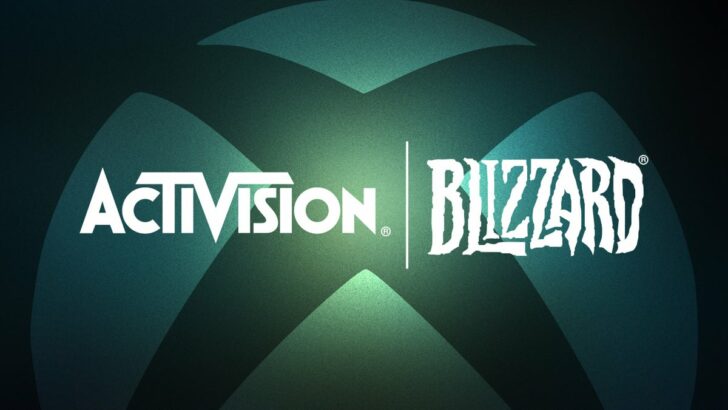Legal Blitz: Djokovic's Player Union Takes On Tennis Governing Bodies

Table of Contents
The world of professional tennis is embroiled in a high-stakes legal battle, a full-blown "legal blitz" pitting Novak Djokovic's player union against the powerful governing bodies that control the sport. The ramifications of this conflict could reshape the future of tennis, impacting everything from prize money distribution to player representation and tournament structures.
Novak Djokovic, a globally recognized tennis superstar and a vocal advocate for player rights, is at the heart of this dispute. The conflict involves several key governing bodies, including the Association of Tennis Professionals (ATP), the Women's Tennis Association (WTA), and the International Tennis Federation (ITF), all of whom wield significant influence over the professional tennis circuit. This article will analyze the ongoing legal challenges, exploring the core issues, legal strategies, potential outcomes, and the broader implications for the governance of professional tennis.
<h2>The Core Issues Fueling the Legal Blitz</h2>
The central disagreements between Djokovic's player union (the Professional Tennis Players Association, or PTPA) and the established governing bodies stem from several long-simmering issues related to player welfare and the distribution of power within the sport.
-
Prize Money Distribution: The PTPA argues that players, especially those outside the top rankings, receive an unfair share of the revenue generated by professional tennis tournaments. They advocate for a more equitable distribution model. The governing bodies, however, maintain that their current revenue-sharing systems are fair and necessary to maintain the overall health of the sport.
-
Player Representation and Decision-Making: A significant point of contention is the level of player representation in decision-making processes within the governing bodies. The PTPA seeks greater autonomy and a stronger voice for players in shaping the future of the sport, challenging the current hierarchical structure where governing bodies hold most of the power. The governing bodies argue that their current structures are effective and ensure the sport's stability.
-
Scheduling Conflicts and Player Burden: The PTPA highlights the demanding tournament schedule and the physical and mental toll it takes on players. They advocate for reforms to reduce the strain on players, allowing them more time for rest and recovery. The governing bodies counter that the schedule is essential to maintaining the sport’s global appeal and profitability.
-
Past Conflicts: The current legal blitz is not an isolated incident; it builds upon years of simmering tension and previous disagreements between players and governing bodies over issues such as anti-trust concerns and player compensation. These historical conflicts have fueled the current level of dissatisfaction and ultimately contributed to the formation of the PTPA and the intensification of this legal battle.
<h2>Legal Strategies Employed by Both Sides</h2>
Both the PTPA and the governing bodies are employing sophisticated legal strategies to advance their positions.
-
Legal Actions: The PTPA has reportedly initiated antitrust lawsuits, claiming anti-competitive practices by the governing bodies, aiming to challenge their monopolistic control over the professional tennis circuit. The governing bodies, in response, are utilizing established legal frameworks and arbitration processes to defend their actions and maintain the status quo.
-
Key Arguments: The PTPA's arguments center on the unfair distribution of revenue and the lack of player representation. They argue that the current system is not only inequitable but also violates antitrust laws. The governing bodies, on the other hand, highlight the financial investments they make in developing the sport and maintaining its global reach, emphasizing the need for a centralized governance structure.
-
Legal Precedents: Both sides are likely to cite past legal precedents related to antitrust laws, player rights, and sports governance, attempting to bolster their arguments and influence the outcome of the legal proceedings.
-
Legal Experts: Both the PTPA and the governing bodies have assembled teams of high-profile lawyers and legal experts specializing in sports law, antitrust litigation, and international arbitration to navigate the complex legal landscape.
<h2>Potential Outcomes and Implications for Professional Tennis</h2>
The outcome of this legal blitz could significantly reshape the landscape of professional tennis. Several scenarios are possible:
-
Tournament Structure Changes: A successful PTPA challenge could lead to changes in tournament structures, potentially resulting in greater player participation in decision-making about tournament scheduling and formats.
-
Impact on Player Earnings: A revised revenue-sharing model could lead to significant changes in player earnings, particularly for those outside the top rankings.
-
Effect on Player-Governing Body Relations: The outcome will drastically influence the relationship between players and the governing bodies, potentially leading to either increased cooperation or further strained relations.
-
Wider Implications for Governance: The long-term consequences extend beyond financial matters. The legal battle’s outcome will profoundly impact how professional tennis is governed, affecting decision-making processes and the balance of power between players and governing bodies.
<h2>Public Opinion and Media Coverage</h2>
The legal blitz has drawn considerable public attention, with a diverse range of opinions expressed across various media platforms.
-
Public Sentiment: Public sentiment appears divided, with some supporting Djokovic and the PTPA’s fight for player rights, while others believe the current governance structure is essential to maintaining the sport’s stability.
-
Media Coverage: Media coverage varies in its neutrality, with some outlets focusing on the legal aspects, while others emphasize the personalities involved and the potential for disruption to the sport.
-
Influence on Legal Outcome: Public opinion, amplified through social media, could indirectly influence the legal outcome, impacting judges' perceptions and the overall narrative surrounding the dispute. The court of public opinion, while not directly influencing legal decisions, can create pressure on all involved parties.
-
Social Media's Role: Social media has played a crucial role in disseminating information and shaping public perception, creating a platform for both supporting and criticizing the actions of both sides in this legal conflict.
<h2>Conclusion: The Future of Tennis Governance After the Legal Blitz</h2>
This "legal blitz" represents a pivotal moment in the history of professional tennis. The core issues—prize money distribution, player representation, and scheduling—highlight deep-seated tensions between players and the governing bodies. The potential outcomes are far-reaching, potentially reshaping the sport's governance, financial structure, and the relationship between players and the institutions that oversee their careers. The legal strategies employed, the public reaction, and the ultimate legal decisions will all contribute to defining the future of tennis governance. To stay informed about the developments in this crucial legal battle and the ongoing debate regarding tennis governance, follow the legal blitz closely. Stay updated on the tennis governance debate by following reputable sports news sources and engaging with discussions around player rights and the future of the sport. Learn more about the player union's fight for better conditions and fairer representation within professional tennis.

Featured Posts
-
 Preoccupations Des Parents D Eleves De Bouton D Or Remplacements Et Problemes De Rats A Florange
May 30, 2025
Preoccupations Des Parents D Eleves De Bouton D Or Remplacements Et Problemes De Rats A Florange
May 30, 2025 -
 Djokovics Player Union Launches Legal Offensive Against Tennis Governing Bodies
May 30, 2025
Djokovics Player Union Launches Legal Offensive Against Tennis Governing Bodies
May 30, 2025 -
 Frankenshteyn Gilermo Del Toro Subbotnyaya Premera Treylera
May 30, 2025
Frankenshteyn Gilermo Del Toro Subbotnyaya Premera Treylera
May 30, 2025 -
 Manchester United E Arsenal Empatam Em Jogo Emocionante
May 30, 2025
Manchester United E Arsenal Empatam Em Jogo Emocionante
May 30, 2025 -
 Activision Blizzard Merger Ftcs Appeal And The Future Of Gaming
May 30, 2025
Activision Blizzard Merger Ftcs Appeal And The Future Of Gaming
May 30, 2025
